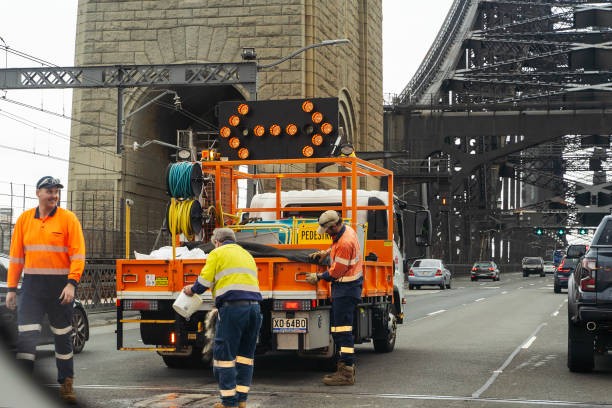Proper waste disposal is essential for maintaining a clean and sustainable environment in Sydney. Whether you're a homeowner, business owner, or tenant, understanding the best practices for responsible waste management can make a significant impact. By following the right procedures, you can ensure that waste is disposed of efficiently while minimizing harm to the environment. Fortunately, there are many Sydney rubbish removal services that can assist in handling waste responsibly, making it easier to keep your surroundings clean.
Understanding Waste Categories
Before disposing of waste, it's crucial to understand the different categories to determine the best method of disposal.
Here are the main types of waste:
General Household Waste
- Includes everyday items such as food scraps, packaging, and non-recyclable plastics.
- Should be placed in the red-lid bin provided by the local council.
Recyclable Waste
- Includes paper, cardboard, glass bottles, aluminum cans, and certain plastics.
- Must be cleaned and placed in the yellow-lid recycling bin.
Green Waste
- Comprises garden clippings, leaves, and small branches.
- Disposed of in the green-lid bin or through composting.
Hazardous Waste
- Includes batteries, chemicals, paints, and electronic waste.
- Requires special handling and should not be placed in regular bins.
Bulky Waste
- Covers furniture, appliances, and large household items.
- Should be collected via council bulk waste services or private collection providers.
Sydney’s Waste Collection and Recycling Services
Sydney provides several waste management solutions through local councils and private providers.
Here are some of the most effective methods:
Council Bin Collection Services
- Regular waste collection services are available for general, recyclable, and green waste.
- Ensure bins are placed outside on designated collection days.
Drop-off Recycling Centers
- Several centers across Sydney accept items like electronics, batteries, and hazardous waste.
- Use local council websites to find the nearest drop-off points.
Bulk Waste Collection
- Some councils offer scheduled bulky item pickups.
- Items should be placed on the curb in accordance with local guidelines.
Private Rubbish Removal Services
- Various companies offer convenient and efficient waste collection.
- Ideal for handling large amounts of waste, construction debris, or urgent removals.
Steps to Responsible Waste Disposal
To ensure that waste is disposed of responsibly, follow this ultimate checklist:
Sort Your Waste Correctly
- Separate recyclables, organic waste, and general waste into the appropriate bins.
- Avoid contaminating recyclables with food waste or non-recyclable materials.
Reduce and Reuse Before Disposing
- Opt for reusable products over single-use plastics.
- Donate unwanted items such as clothes, furniture, and electronics.
- Repurpose materials where possible (e.g., using glass jars for storage).
Recycle Properly
- Follow local council recycling guidelines.
- Ensure recyclables are clean and free of food residue.
Dispose of Hazardous Waste Responsibly
- Drop off electronic and hazardous waste at designated collection points.
- Avoid disposing of chemicals down the drain or in regular bins.
Utilize Green Waste Solutions
- Compost organic waste to create nutrient-rich soil for gardening.
- Use council-provided green bins for appropriate garden waste disposal.
Schedule Regular Waste Pickups
- Keep track of waste collection days to avoid bin overflow.
- Arrange for bulk waste removal when necessary.
Consider Hiring a Professional Waste Removal Service
- If managing waste becomes overwhelming, professional removal services can handle disposal efficiently.
- Ideal for renovation debris, large clean-ups, or business waste management.
The Environmental Impact of Responsible Waste Disposal
Adopting responsible waste disposal practices benefits not only individuals but the environment as a whole.
Some of the key benefits include:
- Reducing Landfill Waste: Proper sorting and recycling significantly reduce the amount of waste sent to landfills.
- Lowering Pollution Levels: Correct disposal of hazardous materials prevents contamination of soil and water.
- Conserving Resources: Recycling helps in reusing materials, reducing the need for new raw materials.
- Supporting a Circular Economy: Responsible waste management encourages sustainable practices and innovation in recycling industries.
Conclusion
Taking responsibility for waste disposal in Sydney is crucial for maintaining a cleaner and healthier environment. By following this ultimate checklist, residents and businesses can contribute to sustainable waste management while reducing their ecological footprint. Whether it’s sorting waste correctly, utilizing local services, or hiring professional Sydney rubbish, every effort counts in making Sydney a greener city. Start implementing these best practices today and help create a more sustainable future for generations to come.





Comments